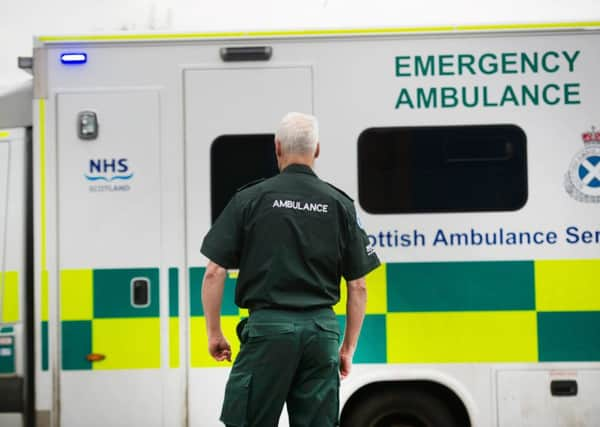If we value the NHS, we must pay a lot more for its life-saving services – Brian Wilson


I have had more contact with the NHS over the past year than desirable though there is nothing like first-hand experience to provide insights.
Having suffered from apparently random ailments and felt generally rotten for a few months, I was referred to hospital in Stornoway. There, I experienced a stroke of good fortune (and excellent care).
Advertisement
Hide AdAdvertisement
Hide AdA Manchester-based consultant who had never previously been there took one look at my case-notes and deduced the ailments were not so random. They were symptoms of a rare form of vasculitis called Wegener’s granulomatosis.
I later learned how fortunate I was to get that diagnosis early since, because the condition is so rare, that does not always happen. So thank you, Dr Ali Salem Ramadan Ajaj, and our NHS without borders.
I was air ambulanced to Raigmore and another lucky break in the person of a Polish consultant with a specialist interest not just in vasculitis, which is pretty rare itself, but my sub-species. These damned immigrants!
Amidst political sniping about Brexit and pernicious claims about demands made on the NHS by immigration, an historical truth tends to get lost. The NHS has, to a significant extent, been built on immigration since its inception. This is nothing recent.
From early days, there were Jewish doctors who had fled the Nazis. There were nurses and auxiliaries brought from Commonwealth countries to meet post-war labour shortages. There were the Irish and in Scotland there was internal migration with the islands providing a disproportionate recruitment base for nurses.
I do not believe Brexit is going to disturb that history to any significant extent. Seven per cent of the NHS workforce in Scotland are of non-UK nationality. In England (I can’t find the same breakdown for Scotland) there are five times as many Indians as Romanians; four time as many Filipinos as Spaniards. Only 5.5 per cent come from EU countries.
Post-colonial attitude
There is no reason to believe, when Brexit dust settles, a shutter will come down on people – consultants or auxiliaries – the NHS requires. However, there is another side to this coin. Would it really be a bad thing if the NHS was less dependent on staff from other countries?
I hope nobody will pretend to be stupid enough to claim that is an “anti-immigrant” question. Nothing could be further from the truth. However, there are reasons it needs to be asked.
Advertisement
Hide AdAdvertisement
Hide AdThe first involves an inescapable whiff of post-colonialism in an assumed reliance on poorer countries sending us doctors and nurses to maintain the NHS. Eventually, these countries become more prosperous – as we are seeing in Eastern Europe – and less likely to export their brightest and best.
Then there is a legitimate question about over-reliance on immigrant labour leading to a failure to educate and train enough of our own people to work in the NHS, at all levels. The question has to be faced up to honestly: “Why are there no longer enough young Scots opting for careers in the NHS?”
Blaming Brexit
In Scotland, Nicola Sturgeon, when Health Secretary, actually cut the number of nursing and midwifery training places in case we ended up with “oversupply and graduate unemployment”. Fat chance. The numbers are only now getting back to 2011 levels.
When the alarming tally of NHS staff vacancies in Scotland was published recently, the response from current Health Secretary Jeanne Freeman was: “We are doing all we can to try and mitigate the appalling impact that a no-deal Brexit poses to recruitment to our health and care services.” Really? Is that all?
Few who have had the kind of contact with the NHS that I have over the past year fail to appreciate the value of the institution, the dedication of staff or strains they are under from myriad factors – mainly that medical science keeps people alive a lot longer than in 1948.
Unless and until society reconciles itself to the fact it is going to have to pay a lot more for the service it demands in time of need, current political debates will prove marginal to these challenges. Blaming Brexit is light years removed from these realities.
